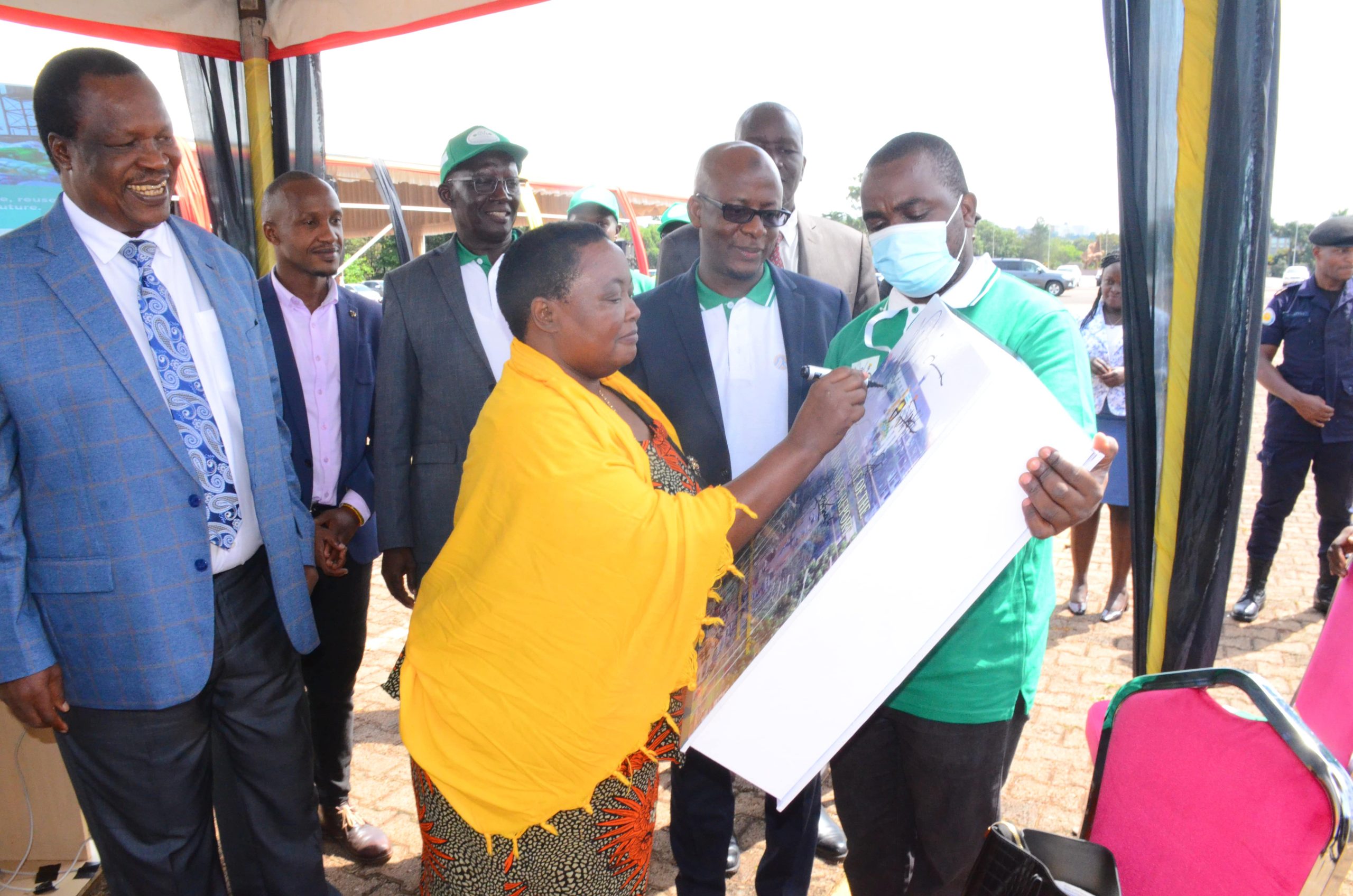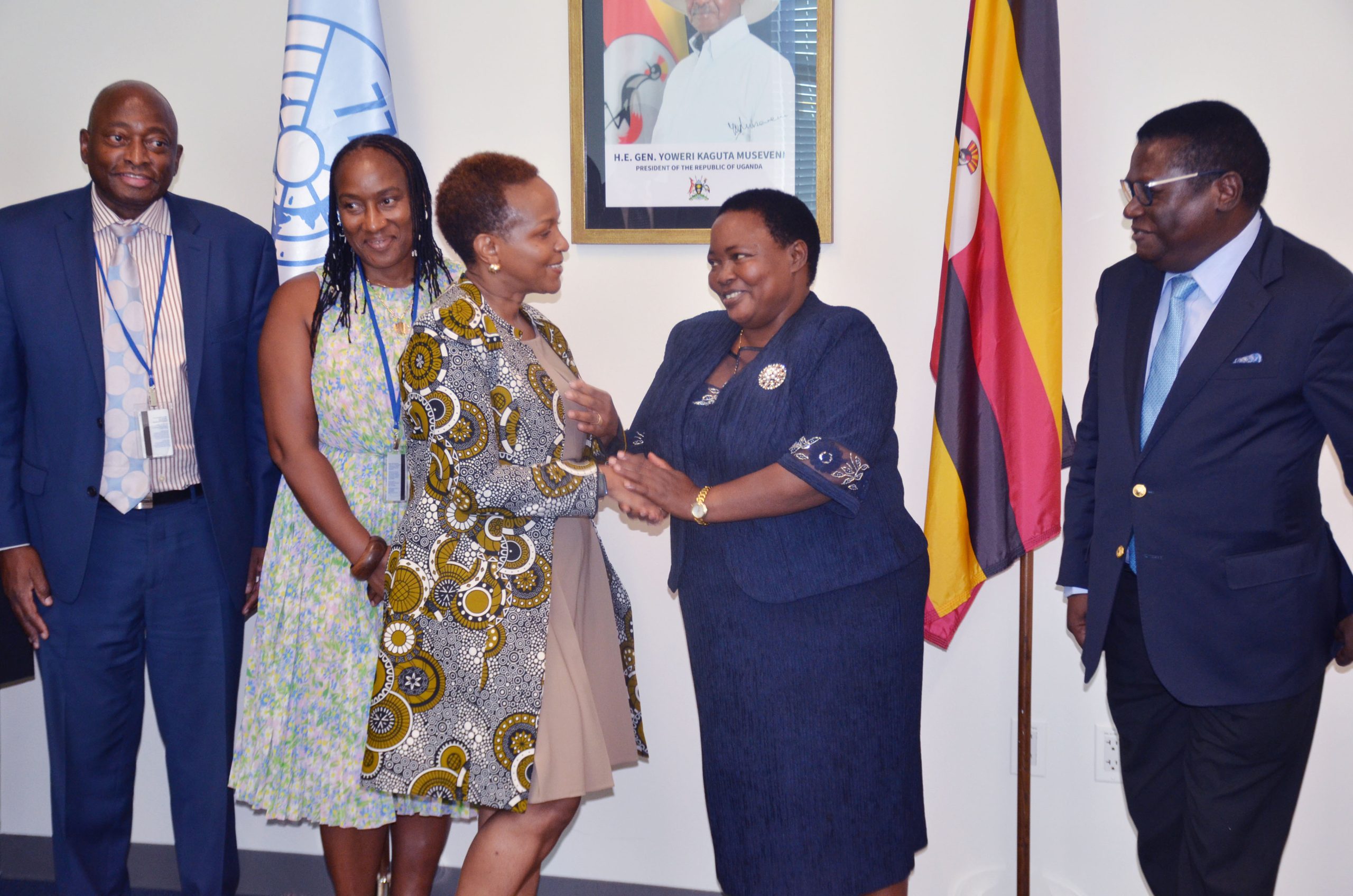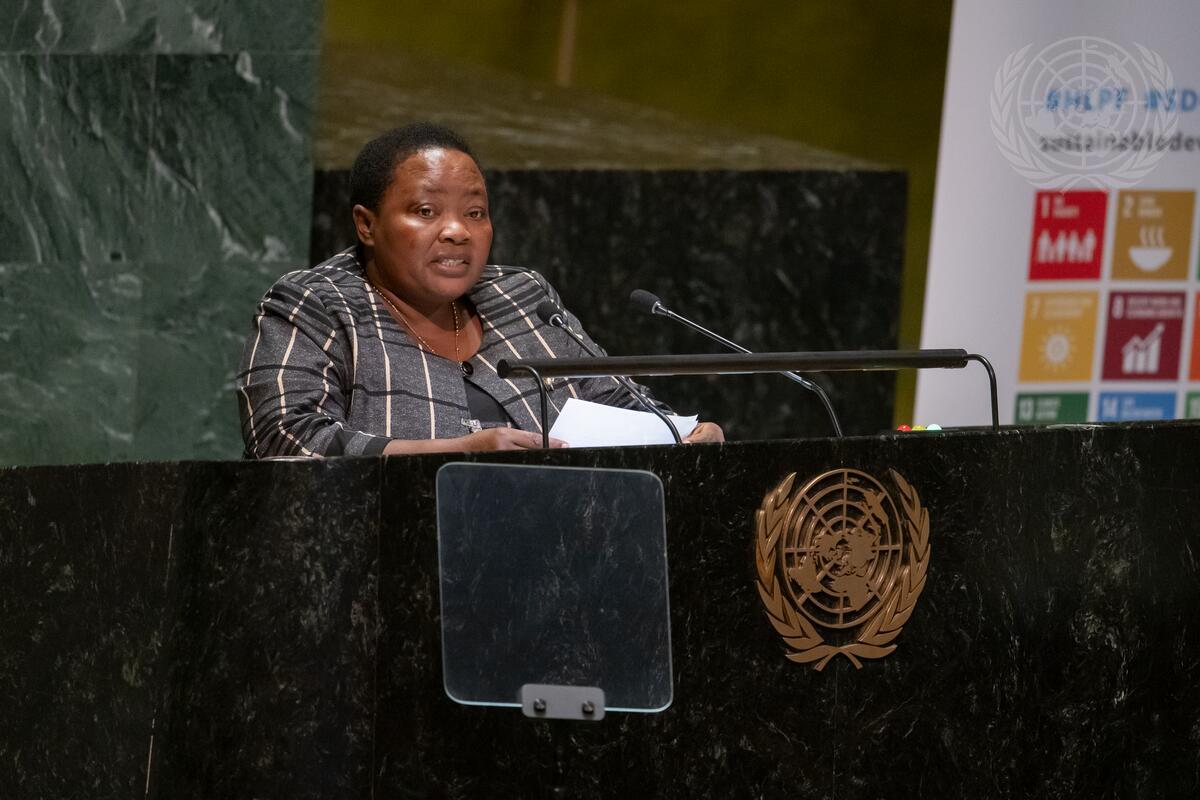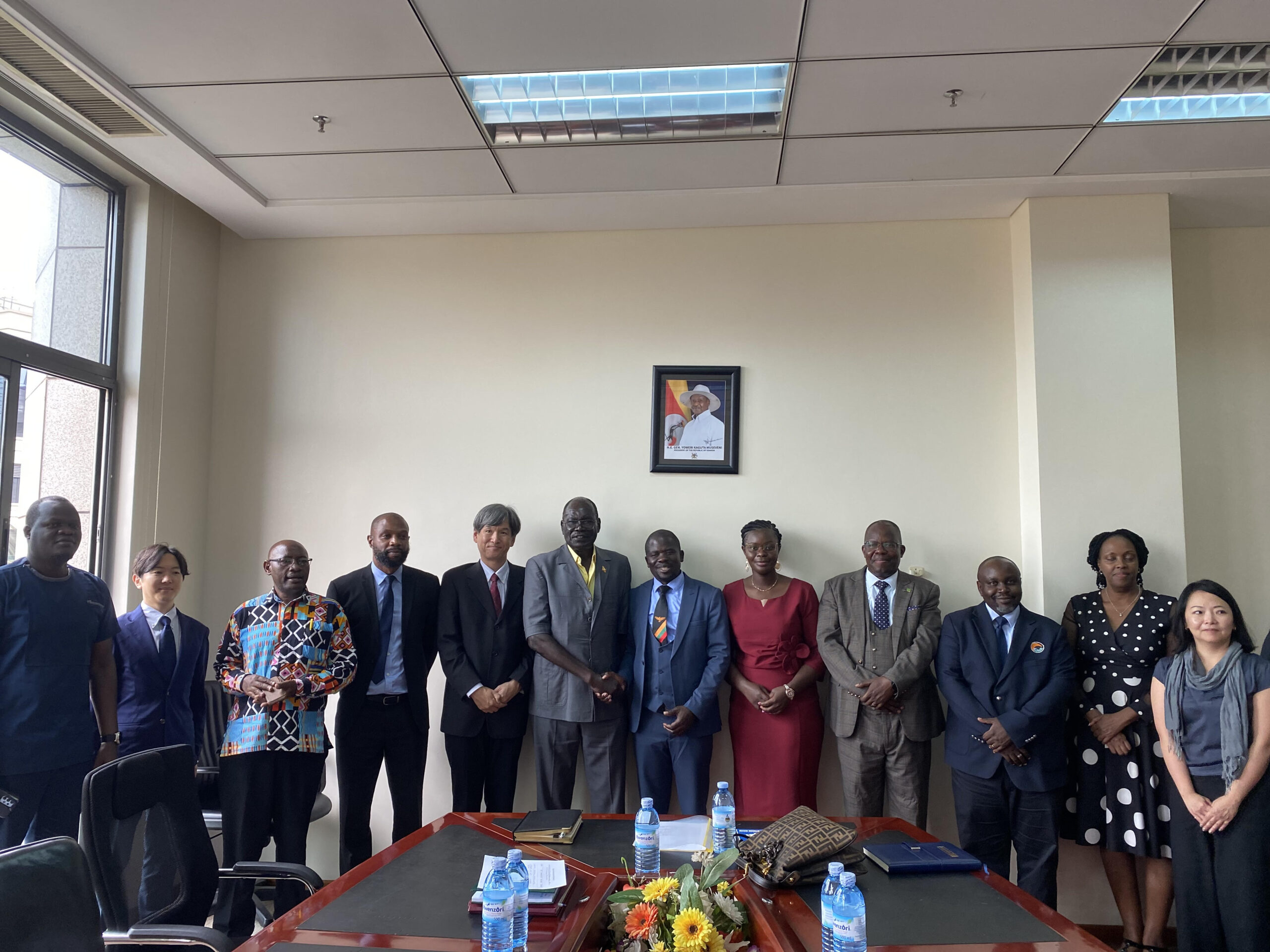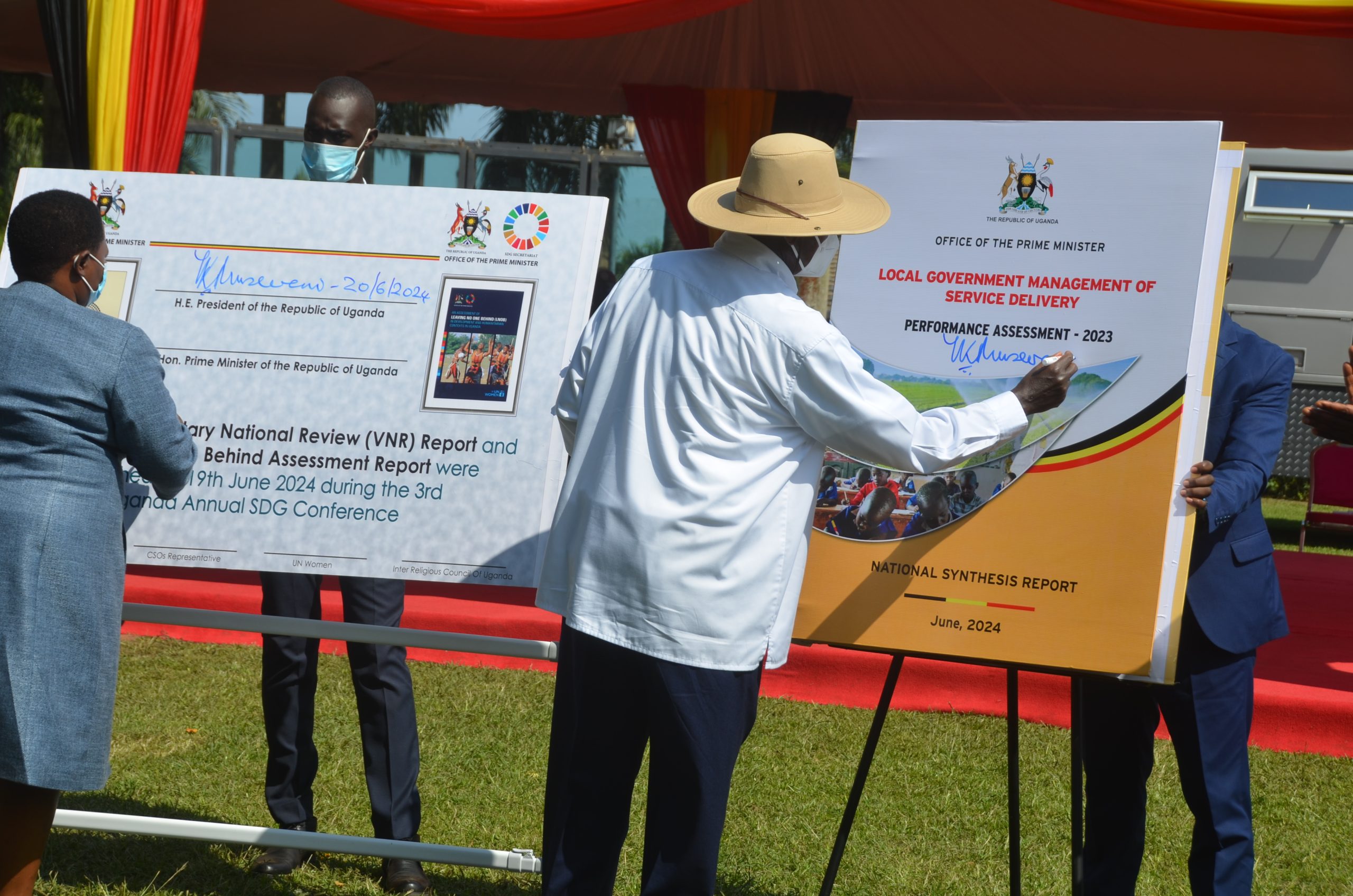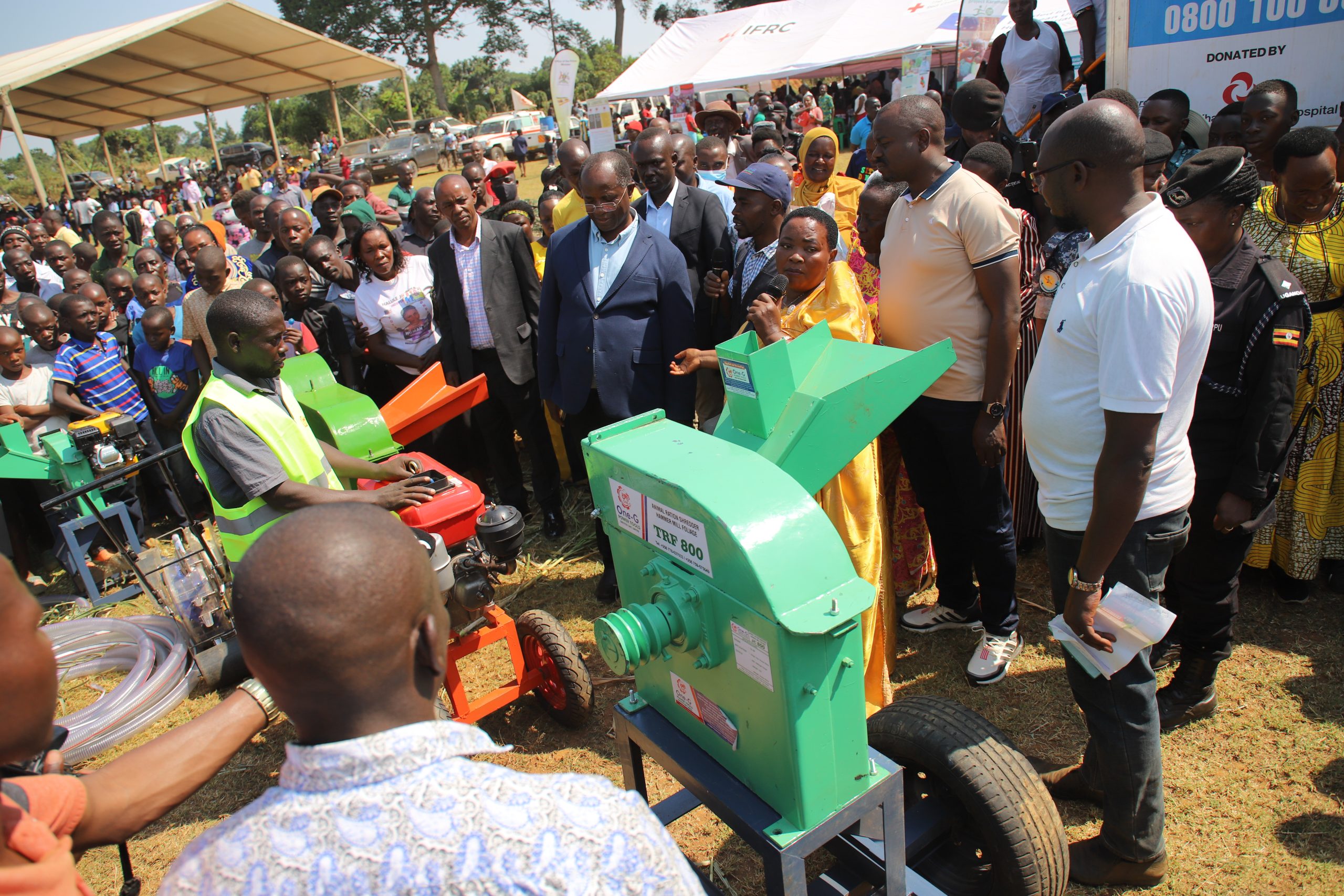By: Ismael Kasooha
Kampala
President Yoweri Museveni has called for the promotion of local alternatives to plastics that have proven very dangerous to the environment.
“There should be promotion of local alternatives to the use of plastics. For example, packaging materials made out of papyrus reeds, banana leaves, banana fibres etc. These are environmentally friendly. Paper bags and fabric bags can replace kaveera,” said the President.
The President’s message was delivered by the Prime Minister Rt. Hon. Nabbanja Robinah who represented him at the World Environment Day commemorations held at Kololo Independence grounds in Kampala.
He said that Ugandans should be informed about the negative effects of plastics, noting that they not only destroy the environment but also produce chemicals that can enter the food chain, causing health complications.
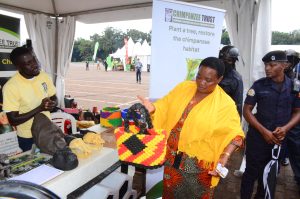
Prime Minister Rt. Hon. Nabbanja Robinah admires a bag made from bottle tops during the World Environment Day commemorations at Kololo
“In order to reduce plastic use, it is important to inform the public that plastic materials are dangerous because they kill our livestock, degrade the soils, enhance water run-off and erosion, block drainage channels, pollute rivers and lakes and kill our fish. They also release chemicals that can enter into the food chain, thereby causing health complications,” noted Museveni.
He emphasized that paper bags and fabric bags can replace the Kaveera, also known as polythene bags, to protect the environment and the adverse effects of climate change and said the government is committed to educating the public on environmental conservation.
The people of Uganda joined the rest of the world to commemorate the World Environment Day and the International Day for Biodiversity. This year’s national celebrations were held under the theme: “Stop Plastic Pollution Today.”
The President said that the theme was appropriate because it was the patriotic duty of all Ugandans to protect their environment.
“You cannot claim to be a patriot if you do not love and care about the environment of Uganda i.e. the Lakes, the Rivers, the Mountains, the soils, the pastures, the forests, etc. These are so vital for our survival that it is criminal to destroy them,” said Museveni.
He said that when you cultivate on the river banks, you cause the rivers to be filled with soil; instead of having blue-water in rivers, you have muddy, brownish-water.
“When you cultivate at the Lake shores, you allow the run-off water to wash away the soils into the lake, thus causing lake-silting, impregnating the lake with nutrients that encourage algae to proliferate. The algae use up the oxygen in the water and, in the end, the fish will die for lack of oxygen. This is all criminal and unacceptable!” said the president.
He added that cultivating on the top of Mountains removes the tree-cover yet the trees protect the soil from direct rain-drops.
He further added that rain-drops, falling direct to the soil, caused the soils to be washed away, especially, if the gradient was steep.
“Without tree-cover, the soil is baked and cracked by the direct sun-rays. Therefore, tree-cover, on hills and mountains, protects the soil from direct sun-rays and rain-drops (amakanda) and stops soil erosion,” the statement read in part.
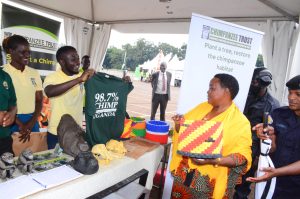
An exhibitor talks to the Prime Minister during the 2023 World Environment Day at Kololo
He said that the soft ground, protected by trees, slows down water flow and, therefore, forces it to sink into the ground, allowing the reinforcing of the under-ground streams.
“Bare soil, on the other hand, becomes crusted and hard like cement. The water, then, cannot percolate into the ground. It just flows to the valleys, causing floods, landslides, etc.; while the underground streams dry up. Patriots should not accept this,” he said.
The president said that the propagation of the use of alternative fuels would help to stop encroachment on our forest reserves for wood fuel.
“Government is committed to promoting greater use of electricity, solar energy and bio-gas and government will double the efforts to educate our people on how to take care of the environment,” he said.
The president however noted that the Government efforts needed to be complemented by the eradication of poverty at the household level, which was often a trigger for environmental degradation.
“The people must be taught how to take care of the environment, but also how to take care of themselves and their families,” he said.
The president added that 39% of the Ugandan households were still stuck in subsistence farming (farming only for food for the home but not for money) or if they engage in commercial farming, they do so without ekibaro (proper family economics).
“The NRM government is focused on creating more wealth creators by supporting the people of Uganda to join the money economy,” said Museveni.
He explained that there were four sectors where wealth and jobs could be created. These were: commercial agriculture, industries, services and ICT.
Museveni said that, that was why the Parish Development Model and other wealth funds were important.
“The Parish Development Model is the latest government intervention to integrate the 39% of Ugandan households that are still in subsistence farming into the money economy, with the parish as the epicentre for socio-economic transformation. An economically empowered population will be in a better position to protect and conserve the environment,” he noted.
The Minister for Water and Environment, Sam Cheptoris appealed to manufacturers to spare the country of the dangers of plastics.
“We know that you contribute to the development of the country by paying taxes but you need to spare from plastics and Buvera that have ruined our environment,” said Cheptoris.
While speaking at the same event, the Executive Director of National Environment Management Authority Dr. Akankwansah Barirega urged the government to work on several constraints to enable them to perform better.
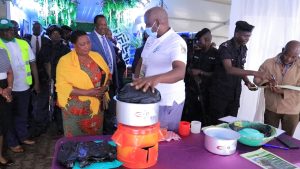
An exhibitor explains to the Prime Minister the dangers of using polythene bags in cooking food during the 2023 World ENvironment Day at Kololo Independence grounds
Dr. Akankwansah Barirega noted that the Authority and lead agencies were struggling with inadequate manpower, equipment, and financing and said that National Forest Authority was in charge of 506 officially gazetted central forest reserves but it had less than 400 staff to man all the reserves.
He noted that the situation was no different in local government and urban authorities and added that there was still a challenge to the legal regime, especially in plastic pollution control where the National Environment Act only prohibited plastics of 30 microns and below which made it difficult to identify the plastic of 30 or 35 microns and below.
The 2022 Uganda State of Environment Report was launched and a Memorandum of Understanding signed between NEMA and Uganda Manufacturers’ Association on greening the industries.
End
